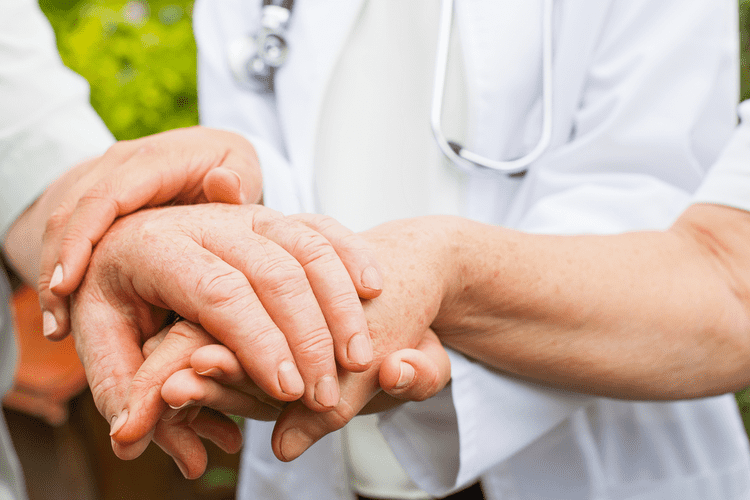You can expect certain alcohol withdrawal symptoms such as sleep disruption to occur, though some people can experience seizures and other severe symptoms. Sobriety can be a particularly challenging pursuit for someone with an addiction like alcohol use disorder. The cravings and the urge to drink do not suddenly disappear after 30 days of abstinence. Quitting drinking, even without making other changes, can help you return to better physical health, but regaining emotional and psychological balance can be challenging. If physical symptoms continue after 11 days of abstinence, seek medical attention.
Core Resource on Alcohol

BetterHelp can connect you to an addiction and mental health counselor. Emotional sobriety refers to the ability to deal with and process feelings positively. Generally, sobriety is viewed as the achievement of enjoying a successful life in recovery. Sobriety involves positive mental, physical, and spiritual well-being. Financial troubles and problems finding and keeping employment are major triggers for relapse, but it is possible to take baby steps and get your finances in order. Depending on the type of dependency, PAWS can last from six months to two years after you stop using drugs or alcohol.
ways to cope with grief in recovery
An interview with Vasavi Kumar and Jyoti Chand on substance abuse in the South Asian community, and barriers to getting help. Discover the latest advancements in treating obsessive-compulsive disorder, including innovative cognitive-behavioral and strategic therapies designed to enhance patient outcomes. Neuroscientist Adi Jaffe, Ph.D., who himself recovered from addiction, outlines five steps. Immune systemDrinking too much can weaken your immune system, making your body a much easier target for disease. Chronic drinkers are more liable to contract diseases like pneumonia and tuberculosis than moderate drinkers. Drinking a lot on a single occasion slows your body’s ability to ward off infections–even up to 24 hours after getting drunk.
Identify Your Personal Triggers

Not to mention, the lasting health benefits to the immune system, liver, blood pressure, mental health and much more. From acute alcohol withdrawal, to the ‘honeymoon phase,’ to post-acute withdrawal and beyond, individuals experience a range of physical and psychological changes throughout year one of sobriety. While everyone’s experience is different, this chart shares common phases of the alcohol treatment timeline.
The 5 stages of grief
- When you’re ready, setting a goal can be a great way to help you move through the grieving process.
- A mental health professional can help you cope with some of the challenges you’ll face on your path to sobriety.
- Others do well on their own making use of available community resources.
- Here’s advice from clinicians about how to get through this challenging period.
Talking to a counsellor or therapist can help provide you with a third party perspective. They can put the pieces together and show you how your grief has affected other areas of life. They can provide you with a safe and supportive environment to explore the difficult emotions that come with grief. Because it’s so important to be aware of what’s https://thebostondigest.com/top-5-advantages-of-staying-in-a-sober-living-house/ going on with you internally during recovery, talking to someone after grieving a loss can be an indispensable asset to your recovery efforts. Try to allow yourself to feel your feelings instead of pushing them down or trying to ignore them. In order to stop feeling a difficult emotion, you need to face it, feel it, and allow it to pass.
Moderate Symptoms
- Practising self-care can be as basic as practising healthy hygiene, sleep habits, and nutrition.
- Knowing relapse signs can help you recognize your risk of relapse, and they may include a return to addictive thinking patterns and compulsive behaviors.
- Intense cravings and irritability are commonly reported after day 12.
- They can absolutely be understood and worked through so that they are no longer weighing you down in any way.
- Brains are plastic—they adapt to experience—and people can change and grow, develop an array of strategies for coping with life’s challenges and stressors, find new means of satisfaction and reward, and negotiate life ahead.
Most people who get sober have tried to quit using drugs or alcohol on their own in the past. If this describes you, then you likely already know that you’re probably going to experience some strong emotions once you quit using. Tap into your social network to help support you through alcohol withdrawal.
- Therapy may be critical to resolving underlying problems that made escape into substance use so appealing in the first place.
- For many, the action stage is both physically and mentally taxing — and individuals at this stage face a risk of alcohol relapse.
- Take your time to feel and accept your feelings, as your emotions are always valid.
- For a person who drinks occasionally, this adaptation is distinct and temporary.
- The truth is, if sobriety really was that bad, nobody would stick around long-term.
- I grieved the loss of many relationships in my life — all the friends I had were drinking friends — and the loss of my old self.
- One study from Substance Abuse showed that women struggling with alcohol misuse and depression, who participated in interpersonal therapy, were able to give up alcohol and maintain sobriety longer than those who didn’t.
- You can expect certain alcohol withdrawal symptoms such as sleep disruption to occur, though some people can experience seizures and other severe symptoms.
- Depending on the severity of the alcohol use disorder, this stage can be mildly annoying or severe.
The best way forward for your recovery from alcohol or substance use is to incorporate a wide variety of strategies that will help foster success. Remember to care for yourself, seek supportive relationships, and consider seeking help from a therapist. Many people who misuse alcohol or drugs have trouble dealing with anger. If left unchecked, anger can have a negative impact on your health and your lasting sobriety. Now that you are sober, you may have discovered that some of your past relationships were not only unhealthy but downright toxic.

During this stage, people are experiencing the negative impacts of their alcohol addiction, but they have no intention of changing their behavior. During the recovery stage, it’s not uncommon to feel temporarily worse. For some people, AUD has hurt their relationships, careers, Sober House health, finances, self-esteem, and other aspects of their lives. Although many people are tempted to make other major life changes during this stage of recovery, such as changing jobs, experts recommend focusing energy on stopping drinking for at least the first year.
It’s a disease—an altering of the brain that controls a person’s motivation and ability to make healthy choices. Once it takes hold, it can be hard to shake loose—without the right help. This can include toxic relationships in which you feel unheard, misunderstood, unsupported, demeaned, unsafe, and/or attacked.
Leave a Reply